Published on 24 January 2024
The European Centre for Medium-Range Weather Forecasts (ECMWF) is a cornerstone in the field of meteorology. It plays a critical role in global weather forecasting, integrating vast amounts of satellite data to provide accurate medium-range weather predictions.
The Centre also engages in vital climate change research, developing sophisticated models to understand long-term climate patterns. This research is essential for informing global climate policies and adaptation strategies.
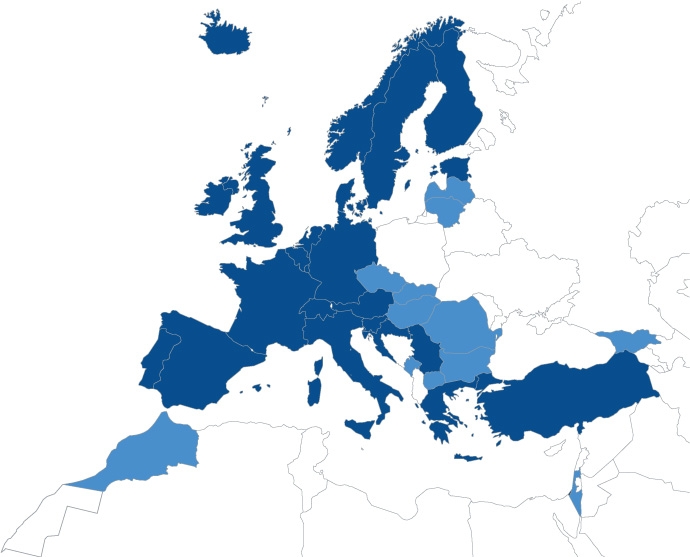 |
Ambitious beginnings
ECMWF was established in 1975 with the aim to deliver precise weather forecasts that span a few days to two weeks. This initiative was born from a shared understanding among European countries that weather doesn't know borders, and should therefore be studied at global scale. For that purpose they decided to set up a centralized and advanced approach to weather forecasting, going beyond individual national efforts.
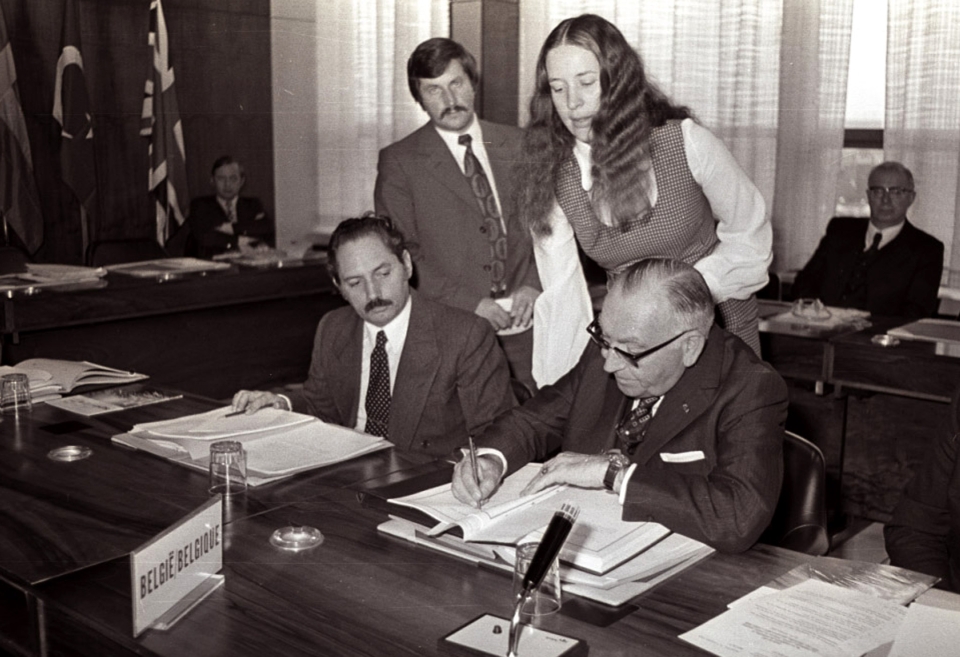
From the very start, ECMWF has been leveraging cutting-edge technology and scientific methods. Over time, the adoption of supercomputers and advanced data analysis significantly improved the accuracy and reliability of weather forecasts. Also, the contribution of Member States proved vital—their support ranged from financial backing to providing valuable scientific knowledge and essential meteorological data. Gradually ECMWF has broadened its horizons to include climate research, establishing itself as a leading authority in interpreting weather patterns and climate change.
What is "medium-range" anyway?
ECMWF was established with the aim of extending our forecasting ability to ideally two weeks into the future. It was very clear that this goal was still far from being reachable. In the 1980s, forecasts were generally reliable for only two to three days. As the Centre continued to develop, several factors contributed to the significant enhancement of its forecasting accuracy. Main contributors were advancements in technology and data assimilation techniques, a growing understanding of atmospheric physics, chemistry and dynamics and the vast increase in available observations, both from satellites and in-situ.
As the image below illustrates, a weather forecast made for seven days in advance today is as accurate as a five-day forecast was back in 2000, and about as accurate as a three-day forecast back in 1980. This improvement is even more pronounced in the Southern Hemisphere, which initially lagged behind in forecast accuracy due to fewer observation systems.
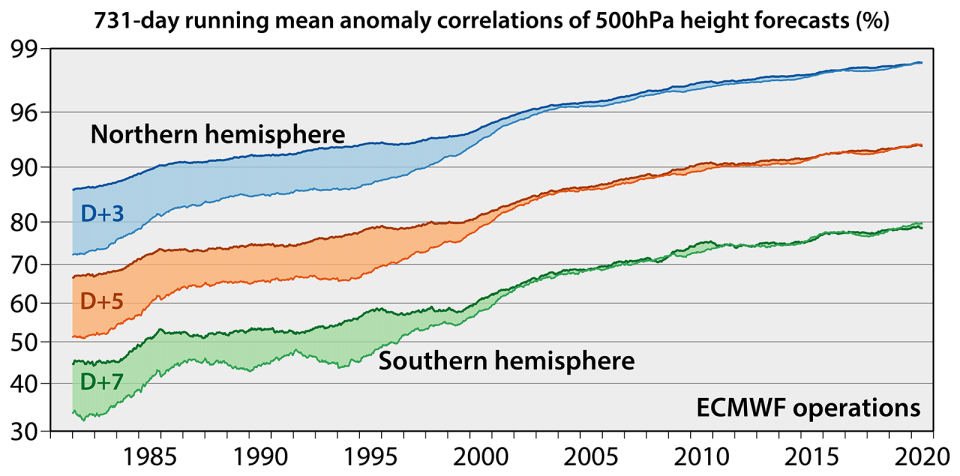 |
Early warnings
The evolution of forecast accuracy is not just a technical achievement; it has real-world implications. It means better preparation for severe weather events, more efficient planning in various sectors like agriculture and transportation, and overall, a greater capacity to mitigate the impacts of adverse weather conditions. ECMWF's journey in enhancing forecast accuracy demonstrates its commitment to understanding and adapting to our planet's dynamic weather systems.
From one site to three, spanning the continent
The Centre was established in Reading, UK, and it is still on the same premises almost 50 years later. Over the decades, it has renewed its supercomputer several times, but gradually the data centre proved less and less suitable for the newest generation of supercomputer. The data centre was therefore relocated to Bologna, Italy, where the new supercomputer was officially inaugurated in 2021..
In response to Brexit, ECMWF also set up an additional site in Bonn, Germany, ensuring that its Copernicus activities remained within the EU. ECMWF has thus evolved into a three-site organisation, demonstrating its ability to adapt to changing needs while continuing to maintain top-tier meteorological facilities.
 |
Impact on society
Predictions and models
The data generated by ECMWF are not directly used by the general public. Instead, the typical end users are Member States' meteorological services such as the Royal Meteorological Institute of Belgium (RMI), which use the medium-range forecasts to complement their own higher spatial resolution but shorter-range forecasts. If you check the weather forecast published by the RMI, the 5 to 10-day predictions are based directly on ECMWF data.
ECMWF uses advanced computer models and analyses massive datasets to deliver crucial insights into weather patterns. In this way, the organisation contributes significantly to public safety and economic stability. Moreover, its research into long-term climate trends is invaluable for understanding and tackling climate change. This information is a big help not just for policymakers and scientists, but also for the general public, helping us all make better-informed decisions.
Education and capacity building
In its quest to enhance scientific knowledge and expertise, ECMWF organizes workshops, seminars, training sessions , and a range of events aimed at disseminating knowledge and fostering dialogue within the meteorological community. Massive Open Online Courses (MOOCs) and educational programmes are also being set up. These different initiatives are designed to cater to a diverse audience, from meteorology professionals and researchers to students and the general public, thereby broadening the impact of ECMWF's work.
For more information about ECMWF’s educational materials and activities, click here: https://www.ecmwf.int/en/learning.
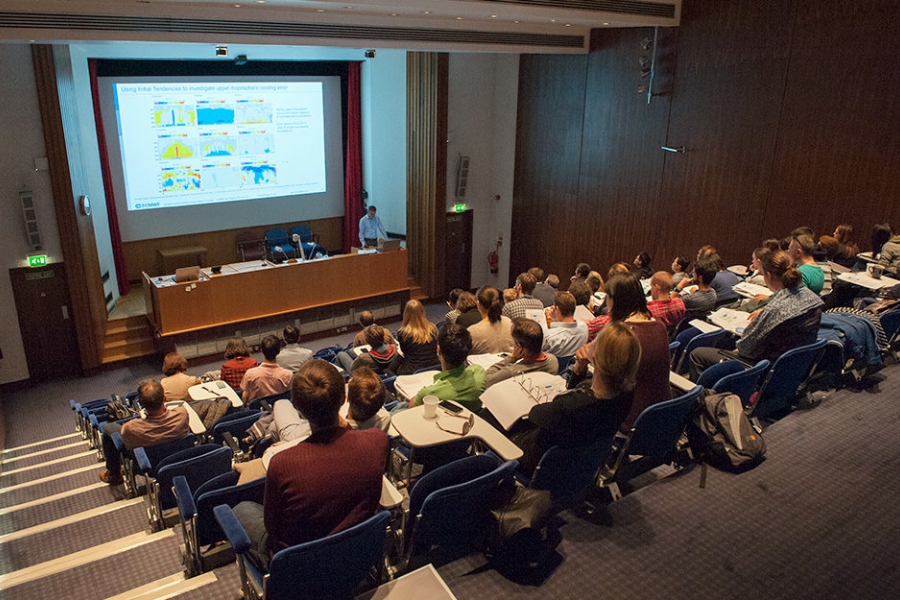 |
A distinct Belgian touch
The most tangible return Belgium gets for its participation in ECMWF is the colossal amounts of data the RMI can access to complement its own weather predictions, but that is not all. Thanks to Belgium’s financial contribution, our scientists and researchers also get to collaborate with some of the world’s leading experts in meteorology and climatology.
On top of that, Belgium gets a place at the table in the ECMWF Council (represented by the RMI and the Belgian Science Policy), allowing our country to contribute to defining the Centre's policy, research priorities and strategic direction. ECMWF also plays a role in the Belgian research programme for Earth Observation, STEREO. ECMWF staff members sat on the steering committee of two STEREO projects that used Earth observation data to better understand the water cycle on Earth:
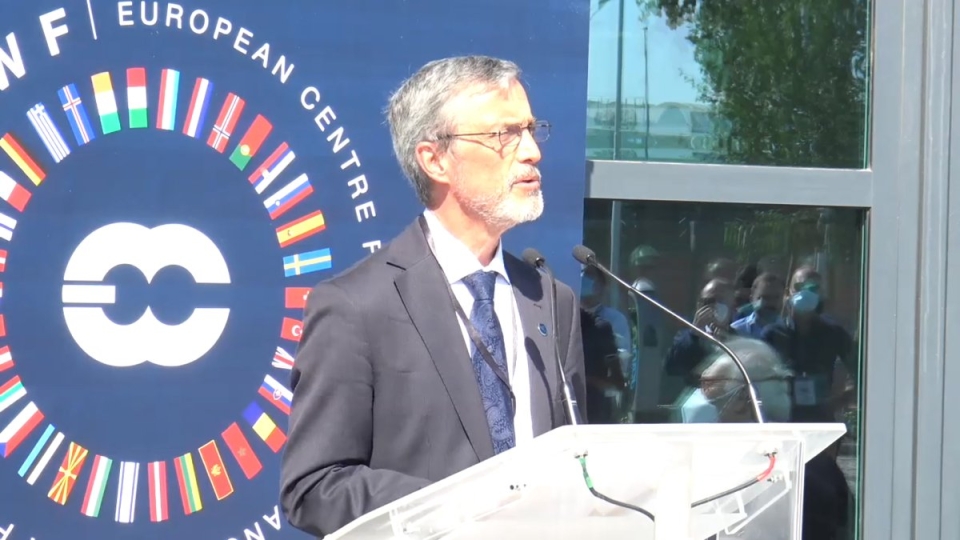 |
In conclusion
Since its inception in 1975, ECMWF has emerged as a pivotal player in meteorology and climate research. Beyond providing operational forecasts, ECMWF serves as a hub for learning and research in various fields, including meteorology, fluid dynamics, and artificial intelligence. These medium-range forecasts are crucial, offering decision-makers additional time to better prepare and respond to extreme weather events, which are predicted to increase in frequency and intensity.
Belgium's involvement in ECMWF grants our country access to sophisticated weather data and a significant role in shaping global meteorological policies. This collaboration between the Centre, member states and international organizations enhances our collective understanding of Earth's weather and climate. Such insights are instrumental in guiding us toward a future that is both more informed and resilient against the challenges posed by our changing environment.